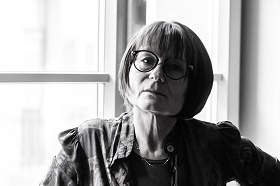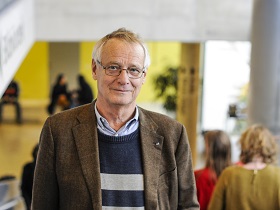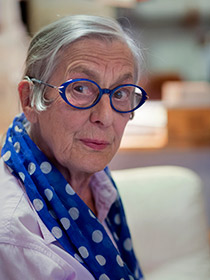
Södertörn University’s honorary doctors
An honorary doctorate is an honorary degree that is awarded to people who have made significant contributions to a field, but who have not had a doctoral degree conferred by the awarding university. The recipients are decided by the Faculty Board, after being nominated by employees at the university.
2021 - Julia Kristeva and Andrea Petõ
Julia Kristeva is a linguist, philosopher, psychoanalyst and professor emerita at University Paris Diderot. She is among the most read and cited intellectuals of our time, not only in France, but internationally. Kristeva has long dedicated her academic — and her public — acts to defining, analysing and being involved in “the diseases of our time”, such as abjection, melancholy, narcissism, racism, radicalisation, etcetera. She is interested in societal issues, political problems and social criticism, and she has contributed to the development of feminist theory since the 1970s. Her Bulgarian background also makes her a good match with the university’s Central and Eastern European profile.
Andrea Petõ is professor of Gender Studies at Central European University, CEU, formerly in Budapest, but now located in Vienna. As a successful gender scholar at CEU, she was one of the current Hungarian regime’s primary targets. Andrea Petõ is a leader is gender research in Central and Eastern Europe. Her contributions illuminate Stalinist and Nazi persecutions from a gender perspective, and she has travelled widely to lecture and promote gender research, not least in Eastern Europe as well as the Middle East. She also has a long-standing close connection to the Centre for Baltic and East European Studies and the subject of Gender Studies at Södertörn University.
2020 - Elena Marushiakova
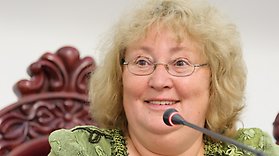
Originally from Bulgaria, Elena Marushiakova is a professor at the University of St. Andrews, and principal investigator for the RomaInterbellum project (funded by the European Research Council). She is a leading scholar in Romani Studies, as well as one of the people who have fought for its inclusion as an academic field. After obtaining her doctorate from Comenius University, Bratislava, with the pioneering thesis Contemporary Ethnocultural Processes among Several Gypsy Groups in Slovakia, she has worked as a professor at several European universities, including the Humboldt University of Berlin and the University of Leipzig.
Elena Marushiakova has numerous points of contact with Södertörn University. She co-founded the Network of Academic Institutions in Romani Studies (NAIRS) in 2016 and is a member of its board; this network is now coordinated by CBEES at Södertörn University. As head of the Gypsy Lore Society, she contributed to its annual conference being hosted by Södertörn University in 2016. The editorial board of the Romani Studies, the journal published by the Gypsy Lore Society, has moved to the university’s CBEES research centre.
2019 - Diana M. Mishkova
Diana M. Mishkova is a professor of history and director of the Centre for Advanced Study in Sofia, Bulgaria. Her historical research has a clear focus on Eastern Europe and the Balkans during the 19th and 20th centuries, specialising in the emergence of nationalism, liberalism and modernisation. Her research has also made great contributions to general insights about the formation of nations and regions, history as a scholarly subject and conceptual history.
Södertörn University’s profile, which combines research in the Baltic Sea region and Eastern Europe with a multicultural perspective, corresponds well to Diana M. Mishkova’s research. The university has therefore collaborated with Diana M. Mishkova for more than ten years, with numerous researchers from Södertörn University either participating in conferences or working as visiting researchers at the Centre for Advanced Study in Sofia.
2018 - Sten Heckscher
Sten Heckscher has a solid and extensive background as a lawyer and official in Swedish public administration, including positions as state secretary in the Ministry of Justice, as Minister for Enterprise, Director-General of the Swedish Patent and Registration Office, National Police Commissioner, President of the Administrative Court of Appeal and Chair of the Supreme Administrative Court. Alongside these positions, he has been regularly commissioned as an investigator for state review bodies.
Heckscher has been involved with and worked for the university’s development in many ways. As the founder of the Academy of Public Administration and chair of its steering group, Heckscher has made substantial contributions to building up and developing what has rapidly become a strong organisation, one that provides contract education, research and third stream activities. He was an advisor and worked with the university on its application to have Police Education located at Södertörn University. Heckscher has also provided advice on legal issues and participated in contract education and undergraduate education at the university.
2017
In 2017, Södertörn University decided to move the annual Commencement Ceremony from November to February, so no honorary doctorate was awarded for 2017.
2016 - Chantal Mouffe
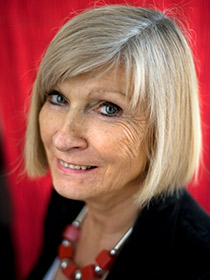
2015 - Nick Couldry
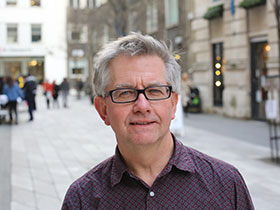
2014 - Rosa Taikon
Rosa Taikon was a figurehead in the struggle for Roma civil rights and a role model who advocated higher education among the Roma. She also had a successful career as a silversmith. Taikon was educated at Birkagården folk high school and at the University of Arts, Craft and Design. Awarding her an honorary doctorate demonstrated a clear stance on the always-current debate about the situation and rights of the Roma and other minorities. Her importance has a direct relationship with the university’s core values of civic education, multidisciplinarity and diversity. Taikon was also awarded the 2013 Olof Palme Prize for her lifelong work for human rights.
2013 - Piotr Sztompka
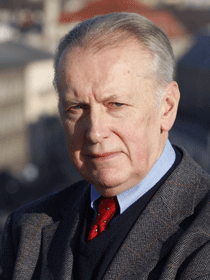
Page updated
10-08-2022


